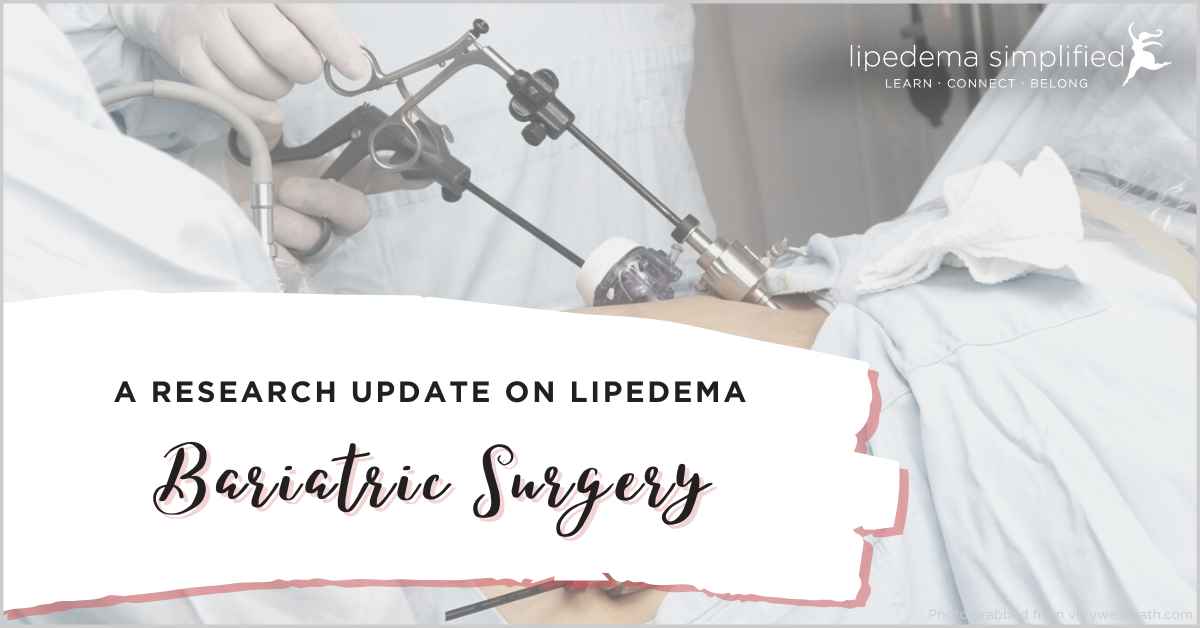
Unveiling the Unexpected: Post-Surgery Realities for Lipedema
Hi everyone, I’m back with another illuminating Research Update. As the Director of Research and President of the Board at the Lipedema Project, I’m dedicated to keeping you in the loop with the latest research developments in the lipedema community.
A Revealing Study in Bariatric Surgery Outcomes
I’m excited to share insights from a 2016 study published in the journal “Surgery for Obesity and Related Diseases,” intriguingly titled “Lipedema in Patients after Bariatric Surgery.” This research, a collaborative effort by several New York surgeons including John Bast, Leaque Ahmed, and Ryan Engdahl, offers an eye-opening perspective on lipedema post-bariatric surgery.
The study revolves around two women who underwent different weight loss surgeries: one a gastric bypass and the other a gastric sleeve. Both experienced significant weight loss – a plunge in BMI for the first woman from 69 to about 41. And for the second, from nearly 60 to 42.5. Yet, despite their remarkable weight loss, both women continued to have excess fat accumulation on their lower bodies. The surgeons’ conclusion? More surgical intervention, such as debulking or liposuction, might be necessary.
The Implications for Women with Lipedema
This finding is particularly pertinent for women with lipedema. It underscores that the outcomes of bariatric surgery may not align with expectations. The study highlights that akin to a starvation diet’s effects, weight loss surgery primarily reduces fat and muscle from the upper body, leaving the lower body disproportionately affected – a characteristic feature of lipedema.
This disproportionate appearance might even lead to the initial diagnosis of lipedema post-surgery. In Germany, some clinicians recommend bariatric surgery for women with lipedema and a BMI over 40. However, this case study suggests that surgery alone might not be the comprehensive solution.
Exploring Alternatives: The Ketogenic Diet
At the Lipedema Project, we’re exploring different avenues. Many women with lipedema, including those who’ve had weight loss surgery, are finding success with a ketogenic diet. This approach is not only effective but also satisfying and enjoyable. Our social media groups are buzzing with stories of women who are combining this dietary change with their post-surgery journey, witnessing even greater results.
Lipedema Tip: Consider exploring dietary changes, like a ketogenic diet, as a complementary approach to managing lipedema, especially if you’ve undergone bariatric surgery. Remember, each journey is unique – find what works best for you!
Stay Informed and Empowered
It’s crucial to stay informed and explore all avenues in managing lipedema. Join us next time for more updates and insights, as we continue to navigate this journey together, armed with knowledge and a supportive community.
Don’t forget to subscribe to our daily Flash Briefings for more tips, tools, and research on managing lipedema. You can find us on Apple, Spotify, Amazon Alexa, or at lipedema-simplified.org/flash.
~ Leslyn Keith, OTD, CLT-LANA
Board President, Director of Research | The Lipedema Project
